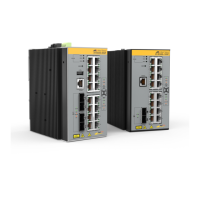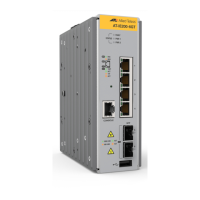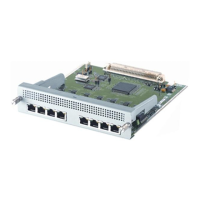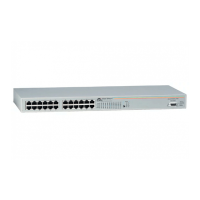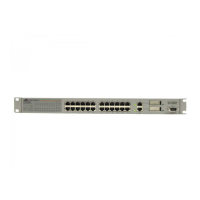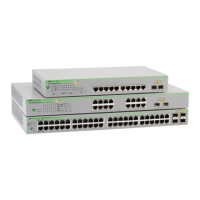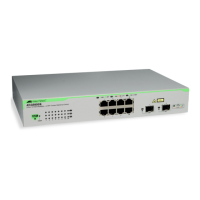C613-50631-01 Rev A Command Reference for IE340 Series 2292
AlliedWare Plus™ Operating System - Version 5.5.3-0.x
AUTHENTICATION COMMANDS
AUTH
-WEB-SERVER INTERCEPT-PORT
auth-web-server intercept-port
Overview This command specifies any additional TCP port numbers that the
Web-Authentication server is to intercept.
Use the no variant of this command to stop intercepting the TCP port numbers.
Syntax
auth-web-server intercept-port {<1-65535>|any}
no auth-web-server intercept-port {<1-65535>|any}
Default No additional TCP port numbers are intercepted by default.
Mode Global Configuration
Usage notes If this command is not specified, AlliedWare Plus Web-Authentication intercepts
the supplicant’s initial TCP port 80 connection to a web page and sends it the Web-
Authentication Login page. However, if the supplicant is configured to use a web
proxy, then it will usually be using TCP port 8080 (or another user configured port
number). In this case Web-Authentication cannot intercept the connection.
To overcome this limitation you can use this command to tell the switch which
additional port it should intercept, and then send the Web-Authentication Login
page to the supplicant.
When the web authentication switch is in a guest network, the switch does not
know the proxy server’s port number in the supplicant’s proxy setting. To
overcome this limitation, you can use the any option in this command to intercept
all TCP packets.
When you use this command in conjunction with a proxy server configured in the
web browser, you must add the proxy server’s network as a ‘No Proxy’ network.
You can specify ‘No Proxy’ networks in the proxy settings in your web browser. For
more information, see the “Web Auth Proxy” section in the Alliedware Plus
Technical Tips and Tricks.
Example To additionally intercept port number 3128, use the following commands:
awplus# configure terminal
awplus(config)# auth-web-server intercept-port 3128
Related
commands
show auth-web-server
Parameter Description
<1-65535> TCP port number.
any Intercept all TCP packets

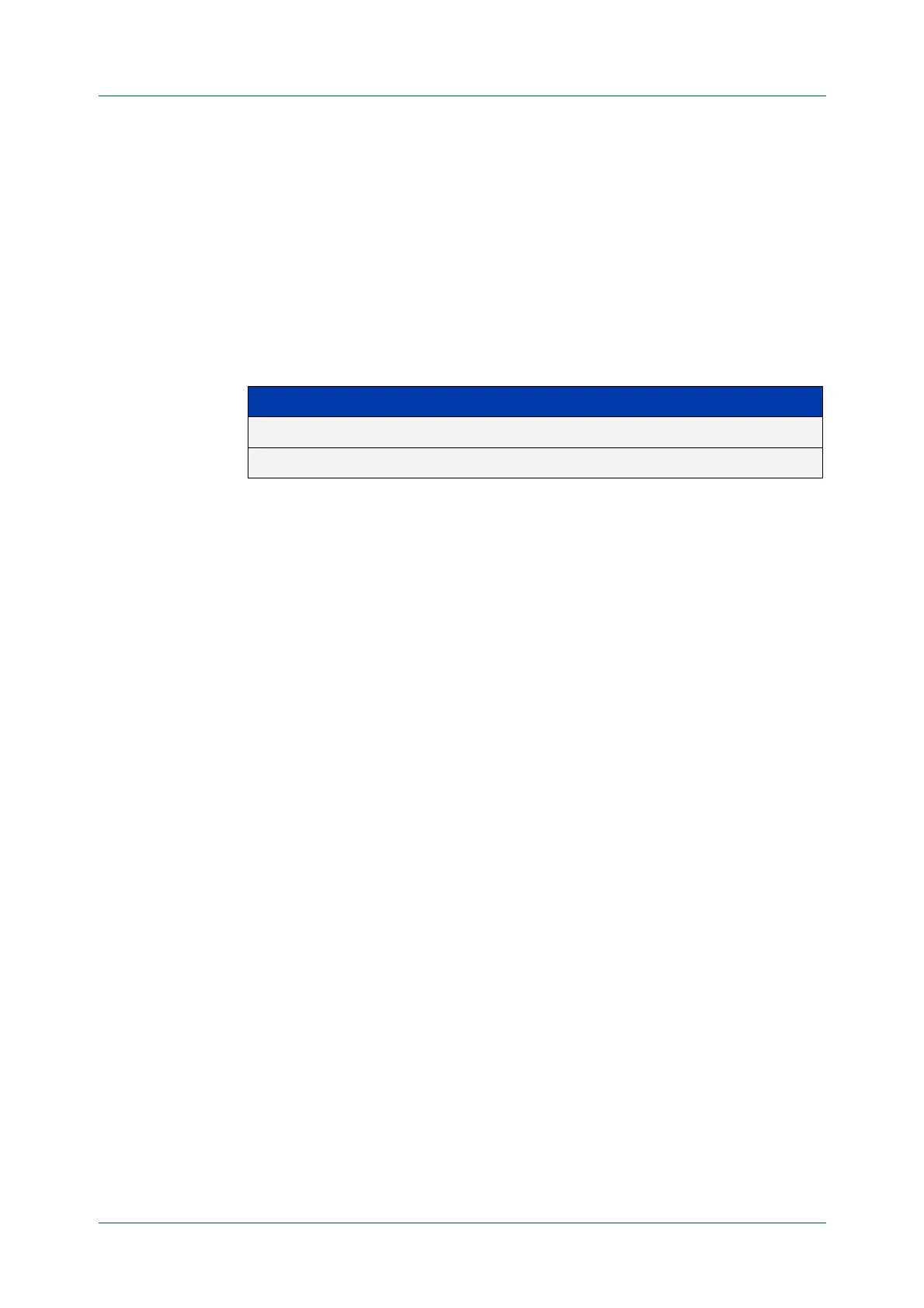